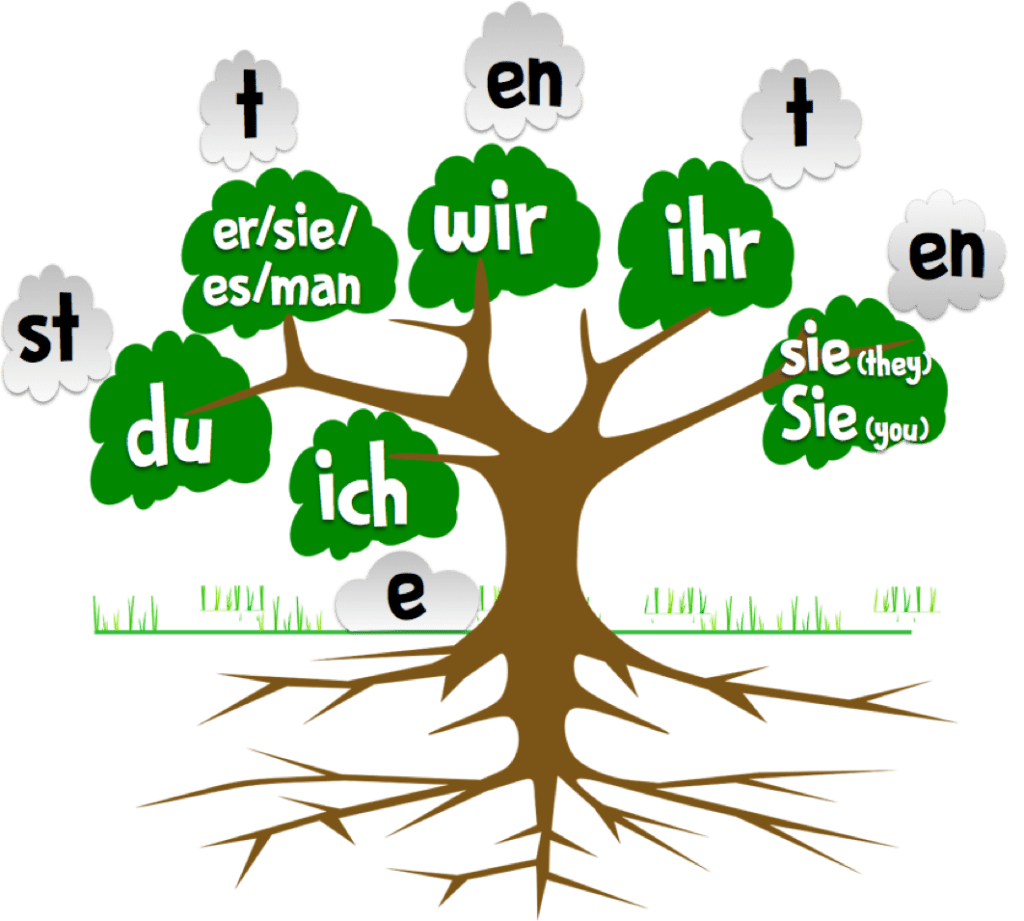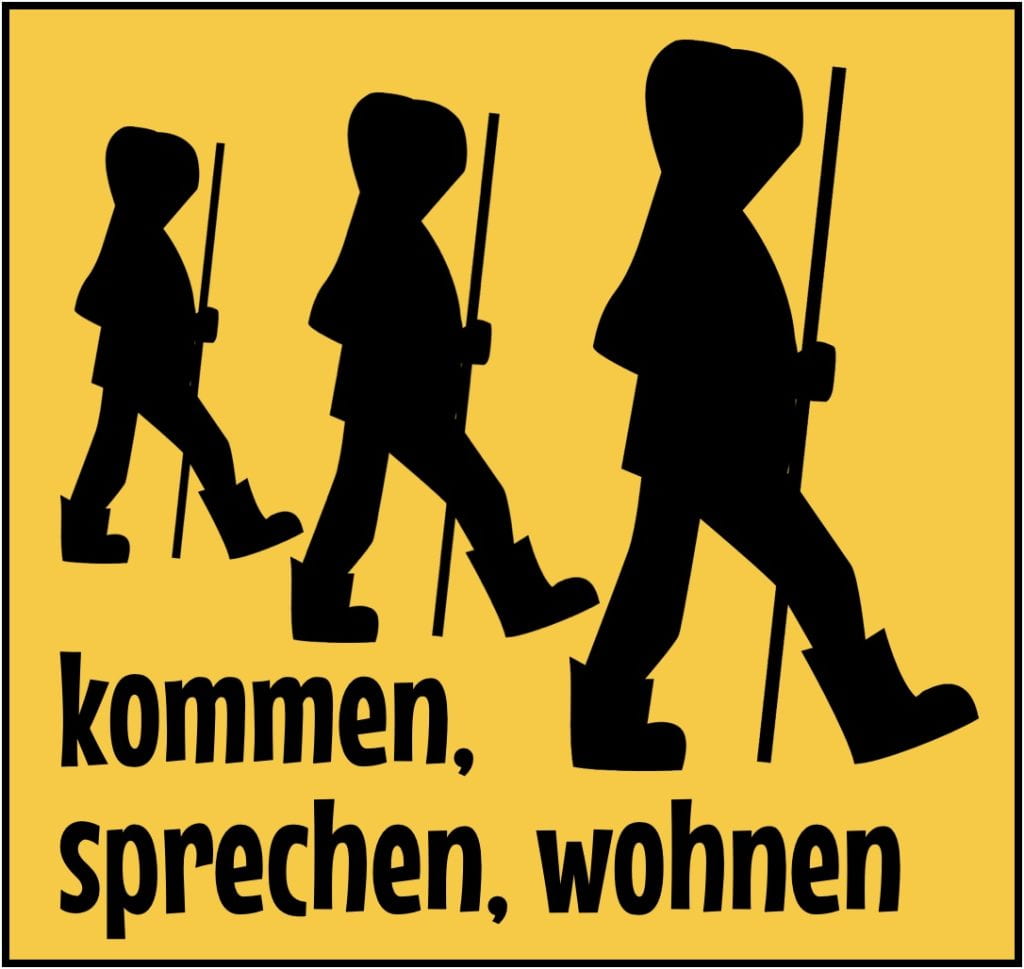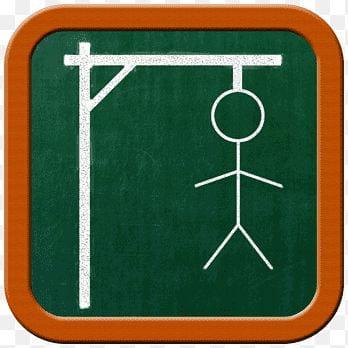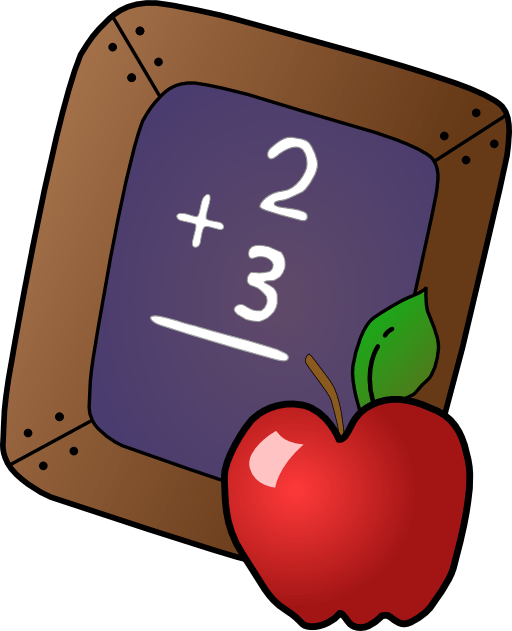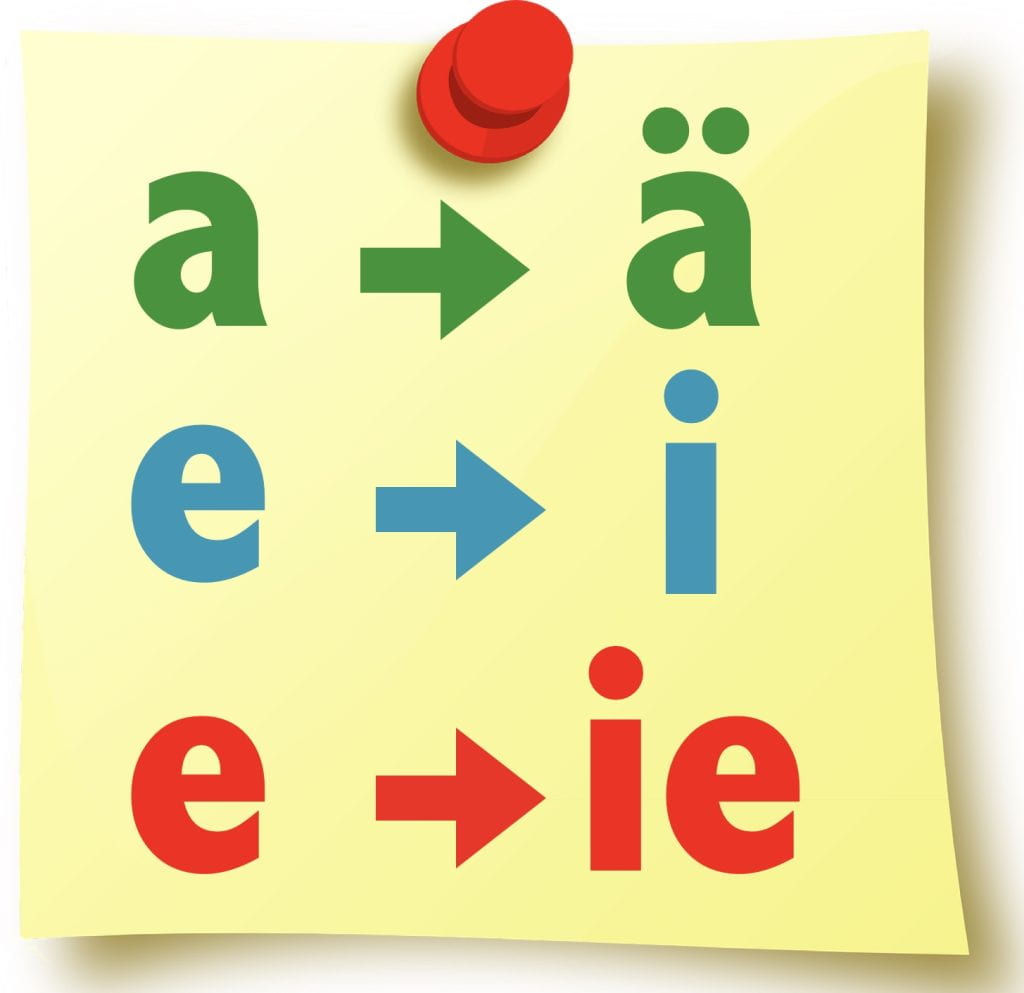
Dealing with the Vowel-Changing Verbs in German
Posted by Roslyn Green, September 2022
Bildlexikon – Picture Dictionary 

helfen – to help
Er hilft seinem Freund.
→ He helps his friend.

fahren – to drive, ride, travel
Er fährt gern BMX.
→ He likes riding a BMX.

essen – to eat
Sie isst gern Eis.
→ She likes eating ice cream.

lesen – to read
Das Kind liest mit einer Taschenlampe.
→ The child is reading with a torch.

Non-Conformist Verbs
The vowel-changing verbs in German remind me of children who misbehave, but only at certain predictable times, like toddlers who always throw a tantrum at the supermarket checkout.

If you focus on when these verbs fail to follow the normal rules, you will be able to use them with ease.
These verbs only “break the rules” in the second and third person singular. Otherwise they are utterly regular, predictable and conformist. They retain the normal endings for regular German verbs; they just have that little vowel mutation in their stem in the second and third person singular.
In English we have a couple of verbs that act like this too. For instance, “I say” becomes “he says” (sez); “I do” becomes “she does” (duz).
Below is a short list of some common verbs that are affected by this little quirk, along with a quiz that will help you to tame them.

Vowel Change: a becomes ä in…
- tragen – to wear, to carry (du trägst, er/sie/es trägt)
- fahren – to drive, to travel (du fährst, er/sie/es fährt)
- schlafen – to sleep, (du schläfst, er/sie/es schläft)
Vowel Change: e becomes ie in…
- sehen – to see (du siehst, er/sie sieht)
- lesen – to read (du liest, er/sie liest)

Vowel Change: e becomes i in…
- nehmen – to take (du nimmst, er/sie nimmt)
- helfen – to help (du hilfst, er/sie hilft)
- essen – to eat (du isst, er/sie isst)
- sprechen – to speak (du sprichst, er/sie spricht)
For a longer list of the most useful stem-changing verbs, go to this German website. In German, the term for these verbs is Verben mit Vokalwechsel.
You may also like to watch this simple explanation from Deutschlernen mit Heidi on YouTube.
Online Activities 
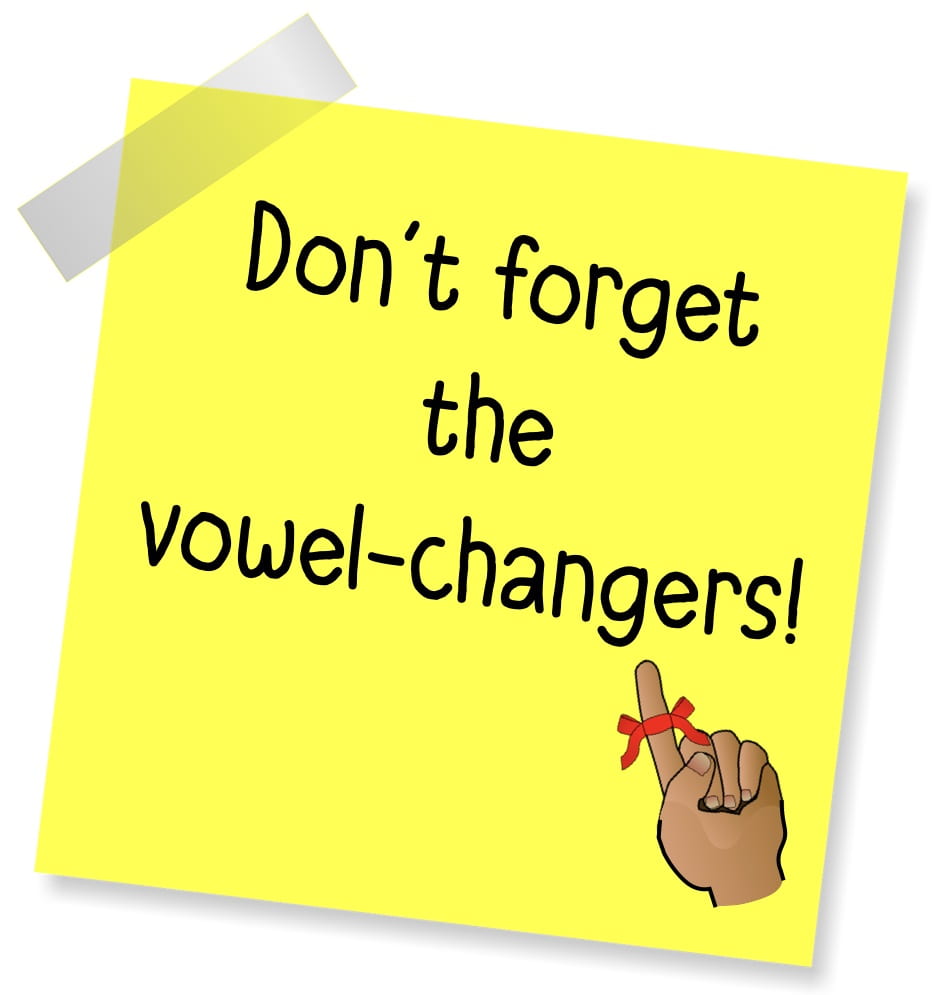
Quiz: A Predictable Pattern: The Vowel-Changing Verbs 
(embedded below ↓)

Audio-Quiz: Am Wochenende mache ich gern nichts 
Practise conjugating the vowel-changing verbs in a fairly challenging text about a laid-back teenager. The audio is embedded in the quiz and was kindly recorded by Carolina Seez.

